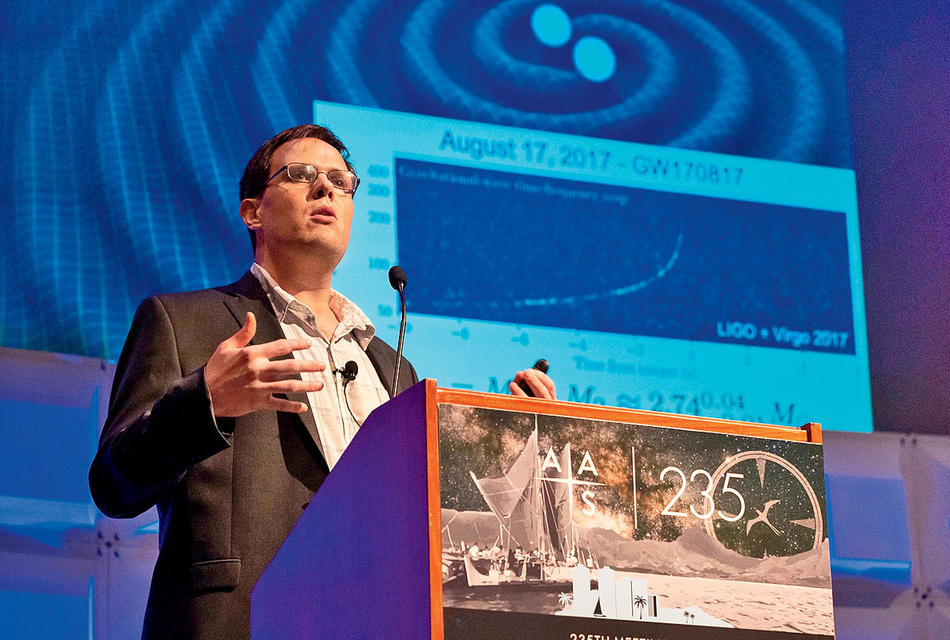Brian Metzger, a Columbia astrophysicist who is widely credited with explaining how gold and other heavy metals formed in the universe, has received a Blavatnik National Award, the largest unrestricted scientific prize for young researchers in the US. Given annually by the Blavatnik Family Foundation and administered by the New York Academy of Sciences, the award comes with a $250,000 prize.
Metzger, who is thirty-nine, first theorized in 2010 that the heaviest elements on the periodic table were created when neutron stars — the ultra-dense cores of stars that have collapsed in on themselves — merged in cataclysmic events that he dubbed “kilonovae.” His theory has since been proven correct to the satisfaction of most astrophysicists. In recent years, space observatories have detected the cosmic fingerprints of several such events that occurred in nearby galaxies billions of years ago and were strong enough to produce huge quantities of gold, platinum, uranium, and other metals.
“Brian Metzger has made multiple and profound theoretical predictions that have proven to be true, something that is rare in the field of astronomy,” says Nicholas B. Suntzeff, an astronomer at Texas A&M University and a member of the Blavatnik prize jury. “One of those predictions — how gold was made — is an everyday question that children might ask, but to which a true scientific answer had remained elusive.”



